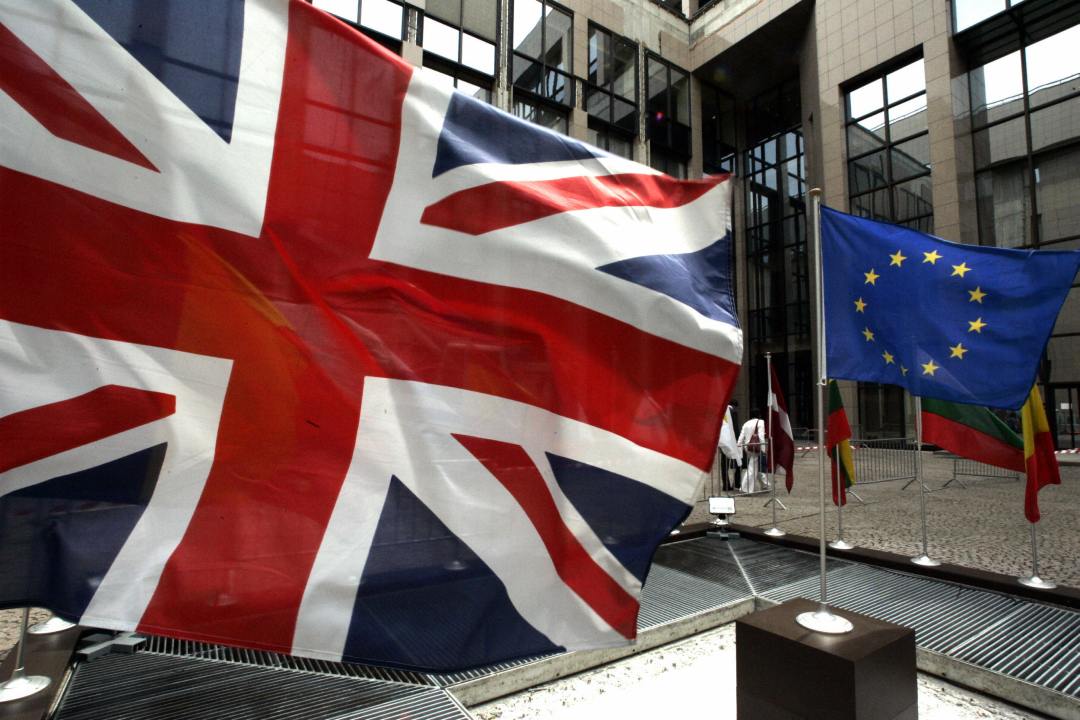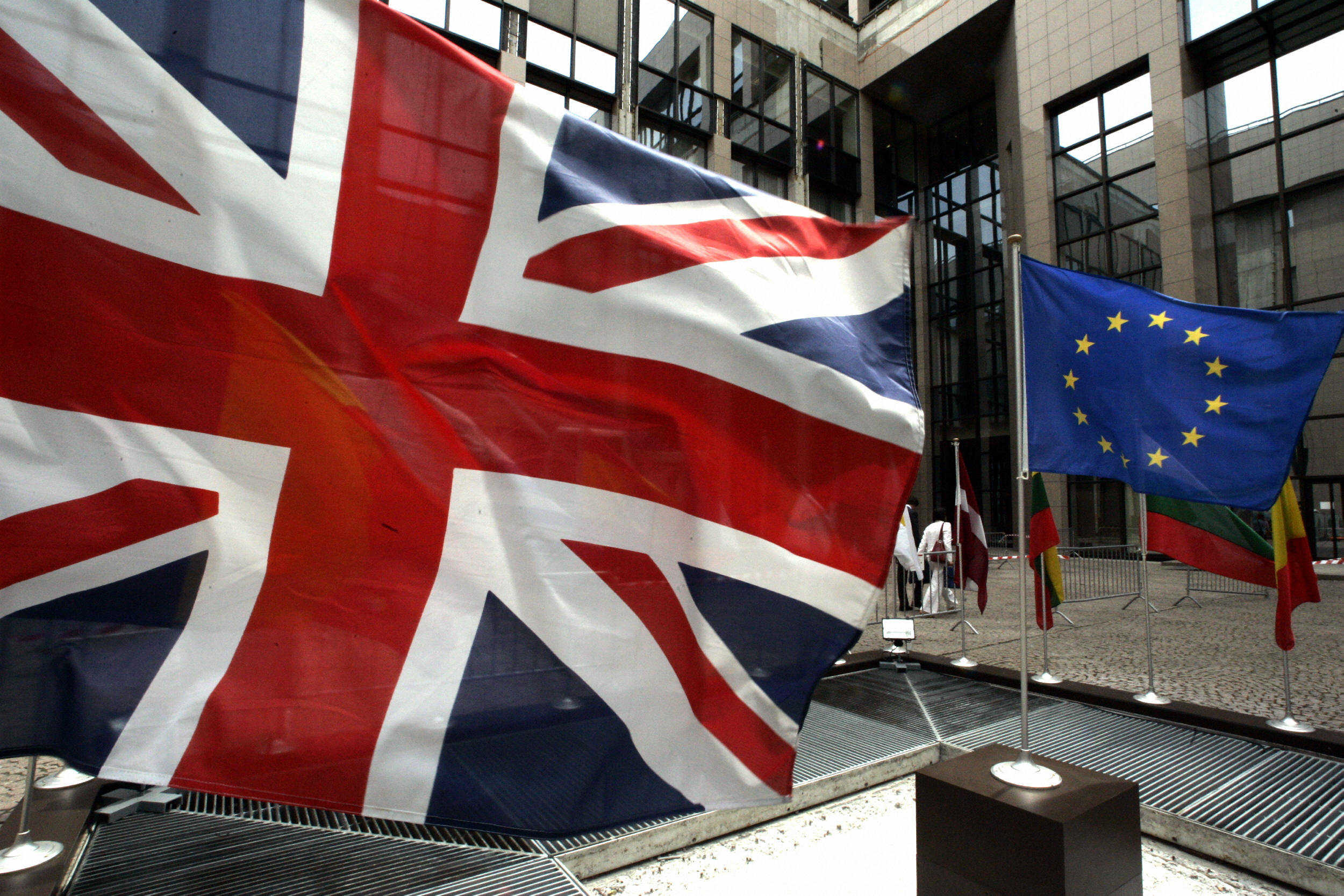 The British electorate, in a referendum held on Thursday 19th June 2014, votes to
leave the EU. On Monday, 23 June 2014, the Prime Minister and the Leader of the Opposition send the following joint letter to the President of the EU Council, the President of the Commission and
the heads of state and government of the other twenty-six EU member states.
The British electorate, in a referendum held on Thursday 19th June 2014, votes to
leave the EU. On Monday, 23 June 2014, the Prime Minister and the Leader of the Opposition send the following joint letter to the President of the EU Council, the President of the Commission and
the heads of state and government of the other twenty-six EU member states.
Dear Herman, José-Manuel, Angela, Nicolas, Silvio etc. etc. …,
UK Resumption of Sovereignty
On 19 June 2014, in a referendum, the British electorate voted decisively to leave the European Union. Her Majesty the Queen, in her capacity as Head of State of the United Kingdom, consented to her Government’s decision to implement the democratically-expressed choice of the British people.
The purpose of this letter is to let you know how the implementation of the electorate’s decision by Her Majesty’s Government will affect the principal strands of the relationship
between the EU and the UK. This letter also constitutes the United Kingdom’s official notification of its decision to withdraw
from the European Union under Article 50 of the Treaty on European Union (as amended by the ‘Lisbon Treaty’).
Although the British people have now chosen to pursue a different path from that of the other member states of the EU, we wish to emphasise that the centuries-old objective of our policy, of
constructive friendship and cooperation with our European neighbours, remains unchanged. A strong, prosperous and peaceful Europe will continue to be a central aim of British policy, and from today
onwards we look forward to developing with our European friends and allies a modus operandi which will further that objective.
1. Timing
The United Kingdom will become an independent sovereign state and cease to be a member of the EU and its institutions and agencies exactly two years from now, on 23 June 2016, referred to
hereinafter as I-Day.
2. EU Law, British Law and Legal Certainty
The UK will cease to be subject to EU law, regulation and case law on I-Day. As from tomorrow, 24 June 2014, only British courts, including the House of Lords and the UK Supreme Court as the
highest courts in the United Kingdom, will interpret and apply EU law, without reference to the European Court of Justice (ECJ). Accordingly, from tomorrow, judgements of the ECJ concerning
British individuals, corporate bodies and HM Government will not be applied in the UK, but referred to the House of Lords and/or the Supreme Court for determination. EU Directives and Regulations
agreed before 24 June 2014 but not yet transposed into British Law will not be so implemented.
Conflicting rulings of the ECJ and British courts arising during the next twenty-four months will be determined by the usual international dispute settlement procedures, including arbitration, for
resolving legal inconsistencies between jurisdictions of independent sovereign states.
From tomorrow until I-Day, and from I-Day onwards, EU Directives and Regulations already transposed into British law will continue to be valid (and enforced solely by British courts without
reference to the ECJ) unless and until repealed by the Westminster Parliament or the devolved Parliaments and Assemblies in Edinburgh, Cardiff and Belfast.
3. European Parliament
British MEPs will continue to represent their constituents in the European Parliament until I-Day, but will not participate or vote in any new legislation brought before the parliament in the next
twenty-four months. Their salaries and allowances will be progressively reduced over this period to reflect their reduced workload. They will resign their seats on I-Day and thereafter take no
further part in the parliament’s activities.
4. Council, Commission and other EU institutions and agencies
British officials and employees of the Council, Commission and all other EU institutions and agencies will negotiate the timing and terms of their departure with the relevant EU authorities.
British representation at COREPER and in other EU institutions and agencies will be progressively reduced over the next twenty-four months, in co-operation with the relevant EU bodies and the other
26 member states.
5. EU Budget
The UK’s monthly gross contributions to and receipts from the EU Budget will be reduced by 1/24th on a straight-line basis in each of the 24 months between now and I-Day, to reflect the
progressive disengagement of the UK from the EU over that period.
6. Trade
On I-Day, the UK will withdraw from the EU Customs Union and UK trade will cease to be regulated by the EU. At the World Trade Organisation (‘WTO’) the UK will resume its own seat and
vote in its own right. Trade between the UK and EU-26 and between the UK and the rest of the world will be conducted as already provided for in the WTO, UN, NATO, OECD and other multilateral
treaties, and relevant declarations of the Commonwealth.
7. Defence
On I-Day the UK will cease to participate in EU defence planning, activities and operations, including its arms-procurement agencies. From I-Day onwards, the deployment of British armed forces
in the defence of the European continent will be conducted through NATO.
8. Foreign Policy
On I-Day the UK will withdraw from all direct EU foreign policy involvement. Thereafter, the UK will conduct its own foreign policy, through the United Nations and in cooperation with regional
bodies and individual states, including the EU and its 26 member states.
9. Immigration and Asylum
The UK will cease all involvement in EU immigration and asylum matters and resume full and absolute control of its borders on I-Day.
10. Other Policy Areas
In addition to the policy areas specified above, the UK, on I-Day, will cease involvement in all other EU policy areas (Common Agricultural Policy, fishing, banking supervision, health and safety,
policing, education, regulation of working-time, climate change, human rights, etc. etc.).
11. Enabling Legislation in the UK
A Bill to give effect to the measures set out above will be laid before the House of Commons next week.
This is extracted from a new Civitas pamphlet, Time to Say No.







Comments